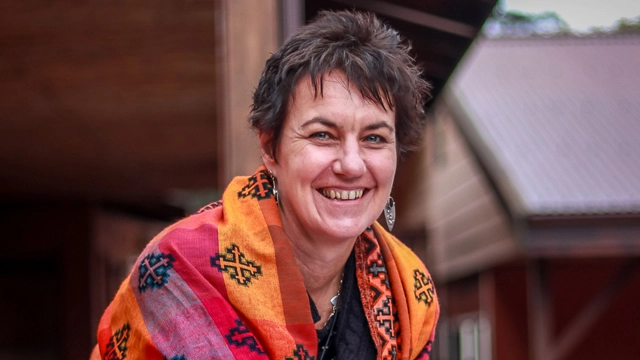South Africa (Rhodes University) New digital library to make 30 years of environmental learning and research resources accessible for all
- Digital
- Rhodes
-
Dec 08
- Share post

By Sam van Heerden
Over the past 30 years, the Rhodes University Environmental Learning and Research Centre (ELRC) has created a plethora of scholarship on social innovation, environmental education, and the transformative potential of university and civil society partnerships.
But this knowledge is scattered across different international libraries, journals, and internal catalogs in various formats, from writing to video. In June this year, the ELRC and the Rhodes University Library team began a project to see all the ELRC’s research hosted in one central digital archive. Once curated here, the investigation will be more visible and accessible to other researchers and the public.
“[At the] Digital Scholarship Unit, we’re trying to promote African and South African research to the Global North,” explains the Principal Librarian of Digital Scholarship at Rhodes University, Debbie Martindale. Often this research is hidden behind expensive paywalls or is not shared widely due to a bias in favor of Global North research, but Martindale and her team hope to change this.
Given the pressing importance of climate change and the impending socio-environmental crisis in Africa, promoting the research of the ELRC marks an essential move in this direction. The project is spearheaded by Distinguished Professor Heila Lotz-Sisitka of the ELRC, who is on an 18-month sabbatical and decided to use this time to archive her 30 years of research for the ELRC. She is also completing the project alongside ELRC alumna and environmental consultant Robin Ferguson.
ELRC researchers will benefit from having their work archived in one central platform where it can gain more exposure.
In turn, this greater exposure also protects the researchers. Martindale explained that when research is not linked to elevated platforms, it is easier for their ideas and data to be misused or stolen by researchers in the Global North, who then put the research behind paywalls. Martindale and her team will be involved in licensing the ELRC’s examination according to open scholarship licensing, ensuring all the research is protected in one place and is accessible to everyone.
The library has been given over 500 research outputs, including academic papers, Master’s and Ph.D. theses, research data, and text and video. All this work from the past few decades will be uploaded onto the ELRC digital library. “The research we’re going to be working with is allocated into different themes [which are] internationally acknowledged and known in environmental education,” explained Martindale.
These collections include context and practice, scholar activism and systems transformation, transformative educational processes, scholarly activities, student work and activities, sustainability commons and spaces, and theory building and methodology development.
Organizing the material in this way not only helps to archive the research but also helps to make it more visible and accessible. “Anyone interested in the collection [topic] will be able to see other research projects addressing that [theme],” said Martindale. In addition, Martindale’s team will link the research to metadata and keywords so that the ELRC’s research outputs are noticeable and easily found on online search platforms such as Google Scholar.
“As a research-intensive institution, it is important that centers like this make their research, particularly on methodologies and theory-building, accessible for the students and other researchers,” said the Director of the Library, Ms. Nomawethu Danster. Professor Lotz-Sisitka has had many innovations in the theory of teaching and learning, including the views of ‘transgressive learning’ and ‘green skills,’ which are new fields.
But the benefits of the Digital Library will also extend beyond academic circles. Martindale said all the ELRC research links to one of the Sustainable Development Goals, so people outside of academia can also benefit from the knowledge. “The layperson or researcher or both will search something like ‘climate action’, and we make sure from our side that climate action links to this and that article in the library.”
The ELRC and library teams will spend the next year populating the library, and it should be live by the end of Professor Lotz-Sisitka’s sabbatical. But the project will continue beyond this point, as the library will update it with new research.
Martindale foresees other departments coming forward to request similar central archives. “[It is an ideal way] to preserve and store critical knowledge bases forever,” she said. “It’s stored online in the cloud, and we already have a backup system.”
Beyond archiving, making university research more accessible and visible is essential for sharing knowledge and making it work for the betterment of society. Digital libraries and the work of Martindale’s team have a central role to play.
Source: Communications
